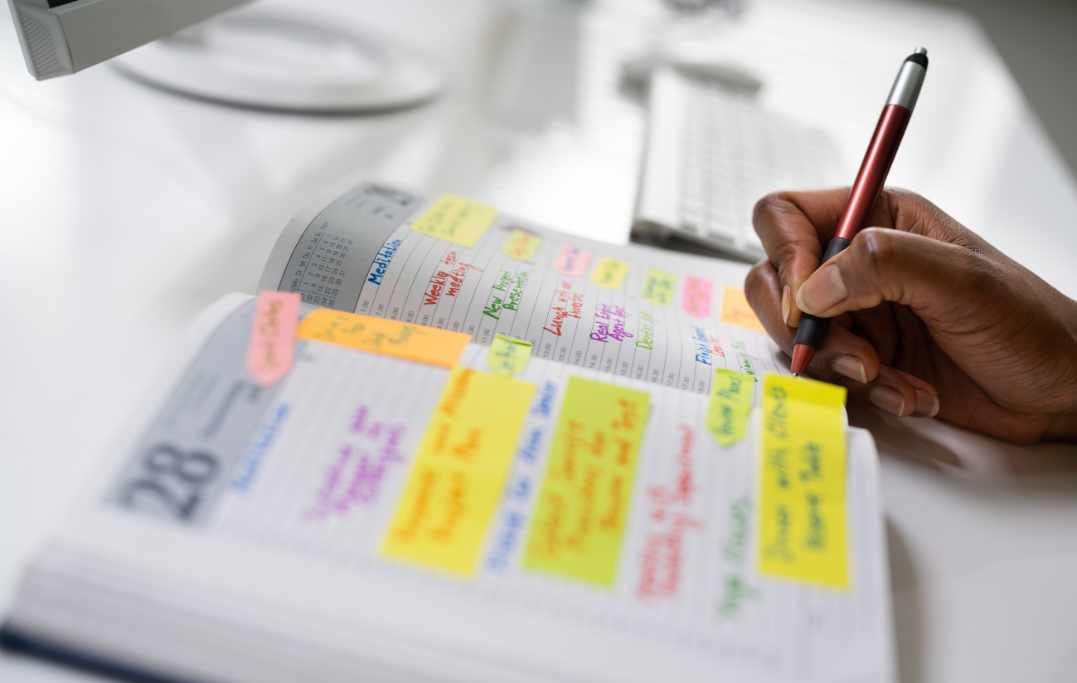Instagram Study Desks Aren't Real
The parts of organisation your teen DOES need to worry about
Instagram and other social media platforms love a beautiful desk setup.
Pastel highlighters, plants, floating shelves. But is this what organisation has to look like?
Really. Not.
Organisation does not equal aesthetic.
Being organised is about having systems in place.
And the systems your teen needs to put in place in order to get themselves organised and stay organised throughout the year, are really quite simple.
For Organisation Month here at Cram Lab, I have set out my favourite organisation hacks and techniques the last few weeks, but I also want to try and provide some comfort to you and your teen that students who get good results are NOT doing anything particularly special, and getting organised does NOT need to feel as daunting as it might.
To make things really simple for your teen, we can put organisation into two categories: Place Management and Time Management.
Let’s take a look at each one.
Place Management
Your teen’s desk and study space does not need to be instagram-worthy, but there will be a point at which acceptable messiness tips into disorganisation.
And the problem with a disorganised study space is that it hinders productivity.
Studying is hard enough on teenagers without them having to battle against their own physical space.
Where’s my class notes? Where’s my computer cable? Where’s the assignment instructions?
That’s a recipe for being demoralised and put off before they’ve even started actually studying.
So keeping on top of the bedroom / study space mess isn’t important for aesthetics; it’s important so that your teen can get on with the job of actually keeping on top of school work and, when the time comes, studying for exams.
But the good news is, your teen does not need to do anything complex or time consuming to get and stay organised. The tips I’ve talked about this month — having a place for everything — using one exercise book per subject etc — is truly all they need to do.
Time Management
A lot of teens think of the study they have to get through like a never ending dark cloud — one without holes to let the sun shine through.
But effective and efficient studying does NOT require your teen to study 24/7, even when exams are close.
The difference between a student who does get good results and one who, unfortunately, doesn’t reach their academic potential, is that the former actively manages their time.
Studying is not something they do just when they ‘feel’ like it, and it’s not something they leave until the last minute the week before the exams.
The ‘good’ student knows they’re playing a long term game, and one which requires small but regular time investments.
Studying time is allocated in advance. It’s baked into their normal schedule, and ramped up come exam time.
This is why I recommend that all teens make two timetables:
1 regular timetable for their normal school week — one that has all of their other commitments and activities, but also makes time (maybe a few one hour slots, it doesn’t need to be heaps) for homework and a bit of study to keep up with what’s going on in class (more details on how and why to make this timetable in this post)
An Exam Study Timetable before they start their exam study (more details on how and why in this post)
There is huge power in a good ol’ timetable. There’s something about planning out your time in advance that makes us a zillion times more likely to get the things done that we need to.
A timetable will help keep your teen accountable.
It also has the fantastic side benefit of helping to keep stress levels down.
I used to find it so reassuring to actually see my plan mapped out. It was such a relief to have a plan in place, and know that if I stuck to it then I’d make it to the finish line.
So again — just as for Place Management — the keys to successful Time Management, are not complex.
Simple time management techniques are all your teen needs for study success.
How’s your teen going at the moment? Are they ready to head back to school? If they have gone back, how are they going? What are they looking forward to / not looking forward to this year, as far as school goes?
Let’s talk it out in the comments.
Thanks so much for reading.
Clare x





